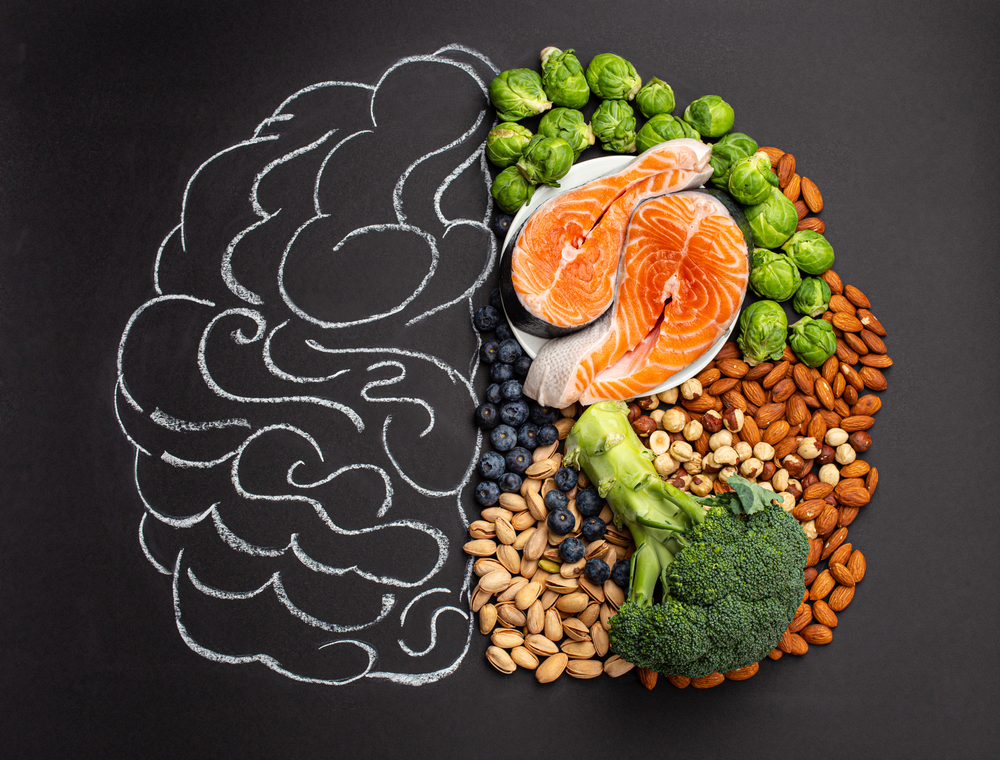Holistic Nutrition for Shift Workers: Nourishing Under Pressure

Table of Contents
In today’s fast-paced world, many individuals work non-traditional hours to keep our society running smoothly. For shift workers, maintaining a healthy and balanced diet can be quite challenging due to the irregular sleep patterns and meal times. Holistic nutrition offers a unique approach to nourishing the body and mind, especially for those who work under pressure. Let’s delve into the world of holistic nutrition for shift workers and explore how it can help support a healthy lifestyle amidst the demands of unconventional work schedules.
Challenges of Shift Work
The life of a shift worker is full of hurdles, especially when it comes to staying healthy. Unpredictable hours mean eating and sleeping at non-standard times, which throws off the body’s natural rhythm. It’s tough to stick to a regular meal plan when your “lunchtime” might fall in the middle of the night or early morning. This erratic lifestyle can lead to a reliance on fast food or vending machine snacks, which are rarely the building blocks for maintaining good health. Shift work doesn’t just affect the stomach; it can also disrupt the much-needed sleep that keeps our minds and bodies running smoothly.
Irregular Meal Times and Sleep Patterns
When you’re working while everyone else is sleeping—or sleeping when the rest of the world is up and about—your body’s natural rhythms can get out of sync. This can throw off when you eat and when you catch your z’s. Think about it: munching on lunch in the middle of the night or trying to snooze when the sun’s shouting, “Hey, it’s daytime!” It’s not just weird; it’s a real obstacle to feeling your best.
But here’s the kicker—these wacky meal times can mess with more than just your hunger pangs. They can shake up everything from your metabolism to your mood. So, if you’re clocking into work while your neighbor’s clocking out, paying attention to when and what you eat becomes majorly important for keeping you on your A-game.
Understanding Holistic Nutrition

When we talk about feeding not just the body, but also the soul and mind, we’re talking about a whole new level of care: holistic nutrition. This is all about a deeper connection to what we eat, ensuring every bite counts for our overall wellness. It’s a journey through whole foods and natural ingredients, steering clear of processed stuff that doesn’t serve our well-being. With holistic nutrition, you embrace a lifestyle where balance and mindfulness are at the heart of your eating habits, making every meal an opportunity to nurture every part of you.
Mind-Body-Spirit Approach to Nourishment
When we talk about fueling our bodies, it’s not just about what’s on our plate. Instead, think of eating as a way to care for your whole being. This includes your mind, body, and spirit, forming a triangle of wellness that guides you toward foods and habits that do more than just satisfy hunger.
Consider this: how you feel in your mind can influence your food choices, and in turn, those choices can affect your emotional and spiritual well-being. With mindful eating, you’re encouraged to listen to your body’s signals, choosing whole foods and natural ingredients that make you feel good inside and out. It’s about creating harmony and being in tune with yourself, despite the chaos that may come with rotating shifts and odd hours.
Focusing on Whole Foods and Natural Ingredients
Eating whole foods and relying on natural ingredients is like giving your body the premium fuel it needs, especially if you’re juggling the odd hours of shift work. Whole foods are the ones that come straight from Mother Nature, not processed or refined, and are typically brimming with essential nutrients. They are the fruits you snack on, the vegetables you add to your plate, the grains that give you energy, and the proteins that help repair and build your tissues.
Why does this matter for those with unpredictable schedules? Simple: these natural powerhouses provide a sustained energy release. They help to stabilize your blood sugar levels, keeping your energy more consistent rather than sending you on a roller coaster of highs and lows. Plus, they’re usually lower in additives and preservatives that can mess with your sleep and mood. In summary, sticking to natural ingredients and whole foods can be your secret weapon for staying sharp and balanced, no matter when your workday starts.
Embracing Balance and Mindfulness in Eating Habits
When you’re on the go or working at odd hours, it’s easy for your eating habits to get out of whack. To counter this, think about eating as more than just putting food in your stomach. Mindful eating is about being present and paying close attention to the flavors, textures, and feelings that come with each bite. It’s a pause in a hectic day, a moment to nourish not just your body but also your spirit.
Balance in your diet is just as crucial. Imagine your plate like a painter’s canvas, where variety is key — a colorful mix of fruits, veggies, lean proteins, and whole grains. This isn’t just good for your health; it’s a feast for your eyes and taste buds, too! Shifting your focus from eating just to satisfy hunger, to eating to deeply nourish your body can transform your whole outlook on food. Remember, a calm meal is a calm mind, so take your time to enjoy every meal.
Key Nutritional Strategies for Shift Workers

Working odd hours can really throw off your eating habits. But even with a topsy-turvy schedule, there are smart ways to keep your diet on track. Meal prepping, choosing foods that help you stay energized, and staying hydrated are just a few strategies that can help. Let’s explore some go-to tips that make eating healthy less of a puzzle for those who are always on the move.
Meal Planning and Preparation Tips for Unpredictable Schedules
When your work hours flip and flop, figuring out what and when to eat can feel like a puzzle. Meal planning becomes your secret weapon to combat the chaos. It’s all about preparing meals ahead of time or having a stash of healthy options ready to grab-and-go.
Think about cooking in batches on your days off. This can be as simple as making a big pot of chili or prepping chicken breasts to eat throughout the week. Another tip is to freeze individual meal portions. Just grab one from the freezer, heat it up, and you’re set! This helps you avoid the fast food trap and keeps your eating on track.
Also, try to keep a routine with your meals, even if your work schedule is all over the place. Bringing food to work? Pack snacks like almonds or yogurt to keep your energy up without crashing. Staying prepared is the name of the game and will help you stay nourished and focused, however unpredictable your schedule might be.
Energy-boosting foods and snacks to prevent fatigue
For those who keep the world turning through the night or in the early dawn, keeping energy levels high is a big deal. Choosing the right foods and snacks is crucial because they act like slow-burning fuel to help you stay alert and active. Whole grains, lean proteins, and healthy fats are the stars in this energy playbook. They give you a steady supply of energy rather than a quick spike followed by a crash.
Snacking smart is the secret to beating fatigue. Try things like a handful of nuts, a slice of whole-grain toast with peanut butter, or a banana. These are not only satisfying but also provide essential nutrients that keep your motor running. Remember, staying hydrated with water is just as important as what you munch on. It helps you maintain your focus and stops dehydration, which can sometimes feel like tiredness.
Hydration and Its Role in Maintaining Alertness and Focus
Staying well-hydrated is like giving your brain and body a big high-five. When you’re working at odd hours, your internal clock might be a bit off, but your need for water? That’s constant. Water is the unsung hero that keeps your cells dancing, your mind sharp, and your focus laser-like, even when the clock says it’s bedtime but your work schedule begs to differ.
Sipping on water throughout your shift can be a game-changer. It keeps the dreaded brain fog at bay and helps you stay on your toes—literally. Not just plain water, though! You can jazz it up with slices of lemon or cucumber for an extra zing. If you’re on your feet all night, embracing hydration could mean the difference between feeling like a sleepy sloth or a nocturnal ninja.
The Impact of Holistic Nutrition on Well-being

When shift workers weave the principles of holistic eating into their lives, they usher in a wave of health benefits that can touch every corner of their existence. This isn’t just about choosing carrots over cake; it’s about a complete synergy between the foods you eat and your physical and emotional health.
Enhanced Energy Levels and Stress Reduction
Living as a shift worker often feels like you’re running on a never-ending treadmill. Your body’s natural rhythm gets thrown off, making you feel drained and on edge. But imagine if the food you eat could turn that around. Holistic nutrition brings this vision to life by focusing on foods that boost your energy and empower you to handle stress like a boss.
Think about it: when you choose a snack, are you reaching for that sugary bar or a handful of almonds? The difference matters! Foods rich in protein, complex carbs, and healthy fats act like your personal energy reserves, releasing power slowly and keeping you going strong. Plus, sipping on calming herbal teas or munching on magnesium-packed treats can take you from frazzled to tranquil, helping your body cope with stress more effectively. By making these mindful choices, you’re not just eating—you’re fueling your well-being.
Improved Sleep Quality and Overall Mood Enhancement
A restful night’s sleep feels like a distant dream for many who work in shifts. But when they embrace a holistic approach to their diet, they’re not just fueling their bodies; they’re setting the stage for better sleep, too. Eating balanced meals that are rich in nutrients can actually help regulate the body’s natural sleep-wake cycle. This means that even if their hours are odd, they’re more likely to fall asleep faster and sleep more soundly when they do hit the pillow.
Not only does a proper diet improve rest, it’s also a mood booster. Foods that are high in antioxidants, such as berries or leafy greens, can reduce oxidative stress, which is often linked to mood disorders. Plus, consuming enough omega-3 fatty acids found in fish or flax seeds has been shown to support brain health, leading to a more uplifted spirit. By taking care of their nutritional needs, shift workers can embrace better moods and outlooks, even when the job gets stressful. Maintaining a balanced lifestyle with nutritious foods isn’t just about physical health—it’s a recipe for a happier, more harmonious life, both at work and beyond.
Supporting the Body’s Resilience to Work-Related Pressure
When work cranks up the pressure, our bodies bear the brunt. Holistic nutrition steps in to throw us a lifeline. It’s not just about munching on the right snacks – it’s a full-on strategy to keep our engines running smoothly, even when the job goes from 0 to 100.
Take it all in: a plate full of colorful veggies, quality protein, and grains isn’t just a feast for the eyes. It’s the fuel that powers our resilience against long hours and tricky schedules. A balanced diet, rich in nutrients, helps bolster our immune system, keeping us ready to take on the world, or at least our next shift. Plus, when we focus on eating foods that keep our mood as steady as a ship on still waters, we’re banking on some serious staying power, emotionally and physically.
Conclusion
By adopting a holistic approach to nutrition, shift workers can nourish their bodies and minds in a way that aligns with the demands of their work schedules. The incorporation of whole foods, mindful eating practices, and strategic nutritional choices can support improved well-being, sustained energy, and enhanced resilience in the face of the pressures that come with non-traditional work hours. Nourishing under pressure takes on a new meaning when approached from a holistic nutrition standpoint, allowing shift workers to thrive in their unique lifestyle.
FAQs
Q: What is the best diet for shift workers? A: The best diet for shift workers involves prioritizing nutrient-dense foods, incorporating a balance of carbohydrates, proteins, and fats, staying hydrated, and opting for smaller, more frequent meals to maintain energy levels throughout varying work hours.
Q: How can I eat healthy while working night shift? A: To eat healthy during night shifts, focus on light and balanced meals, include whole foods such as fruits and vegetables, stay hydrated, limit caffeine intake towards the end of the shift, and prioritize a balanced sleep routine during your non-working hours.
Q: How can I eat healthy when working long hours? A: Eating healthy during long work hours involves planning ahead with nutritious snacks, staying hydrated, opting for whole foods over processed options, and incorporating regular, balanced meals to sustain energy levels throughout the extended work period.
Q: How do you eat for a physically demanding job? A: For physically demanding jobs, it’s essential to prioritize a diet rich in complex carbohydrates, lean proteins, and healthy fats to fuel your body. Additionally, stay hydrated, incorporate snacks for sustained energy, and consider consulting with a nutritionist for personalized advice.
Q: What are the nutritional needs of manual workers? A: Manual workers require a nutritionally balanced diet with an emphasis on sufficient protein, carbohydrates for energy, healthy fats, and a variety of vitamins and minerals. Adequate hydration is also crucial to support physical performance and recovery.
Q: What do you feed a construction crew? A: Feed a construction crew with well-rounded, hearty meals that include a mix of proteins (such as lean meats or plant-based alternatives), carbohydrates (whole grains, vegetables), and healthy fats. Consider providing hydrating options and snacks to keep energy levels stable throughout the physically demanding workday.
Useful resources
- PubMed (National Center for Biotechnology Information):
- Explore scientific articles on nutrition for shift workers and related topics at PubMed.
- Mayo Clinic:
- Mayo Clinic provides reputable health information. You can find articles and advice on nutrition for different work schedules on their website.
- Harvard Health Blog:
- The Harvard Health Blog often features articles on nutrition and health. Visit their blog for insightful posts.
- American Heart Association (AHA):
- The AHA offers information on heart-healthy eating, which can be relevant for shift workers. Explore their resources at heart.org.
- Academy of Nutrition and Dietetics:
- The Academy of Nutrition and Dietetics provides evidence-based information. Check their website at eatright.org for nutrition resources.








It was great seeing how much work you put into it. Even though the design is nice and the writing is stylish, you seem to be having trouble with it. I think you should really try sending the next article. I’ll definitely be back for more of the same if you protect this hike.
Awesome! Its genuinely remarkable post, I have got much clear idea regarding from this post